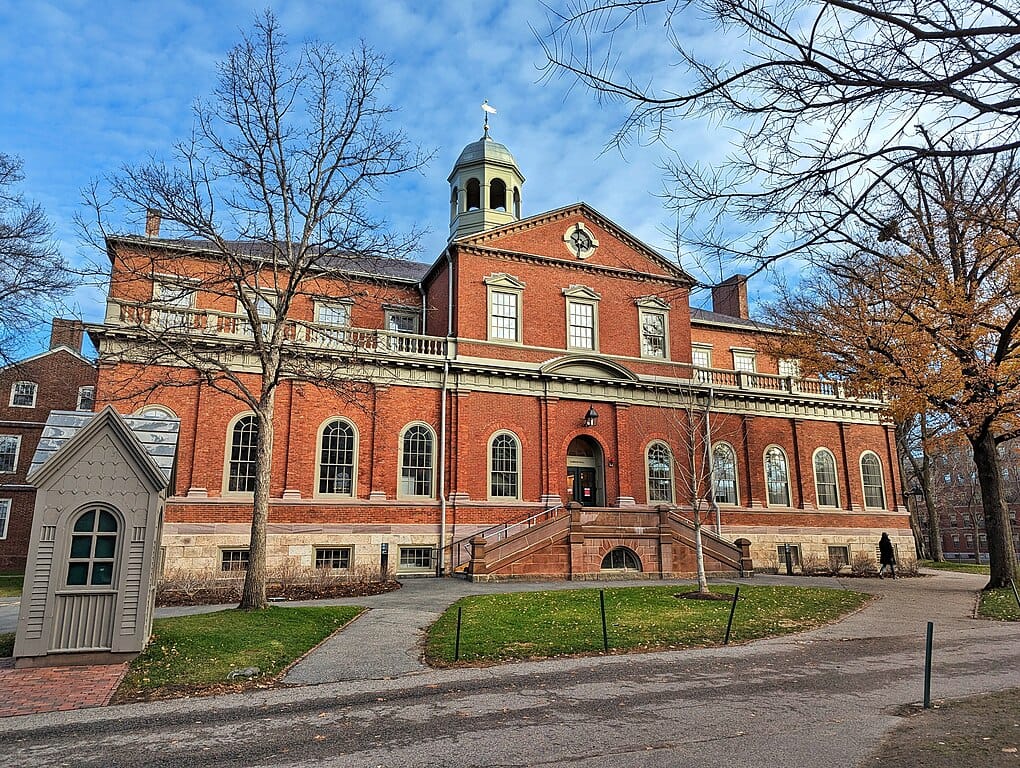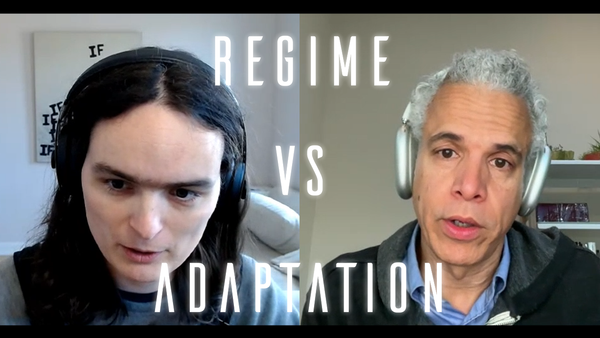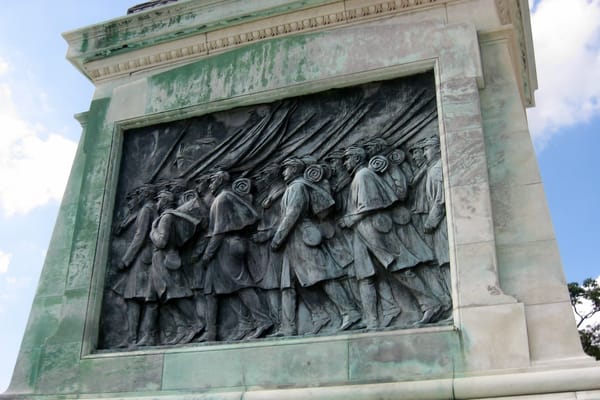Harvard’s Fight Is a Defense of Democracy and Civic Virtue
Harvard’s case will set precedent for every college that relies on federal grants or hosts international students.

Living in a liberal democracy, a free society, doesn’t always look like a marble rotunda or a dramatic floor vote. More often it shows up in the neighbor who clears your driveway after a storm, the parent who volunteers to coach a first‑grade soccer squad, the church committee that organizes assistance for a family in trouble. These unglamorous gestures are the micro‑transactions of self-governance: we practice looking out for and caring for one another. And in the process we learn the habit so when bigger tests arrive, we recognize what mutual obligation feels like.
Harvard University is living one of those bigger tests right now. The Trump administration has frozen more than $2 billion in research funding, threatened to yank the university’s tax‑exempt status, and tried to bar all new international students from its gates. On April 21 the university sued, arguing that the international student ban violates the Constitution and statutory laws. On June 23 Judge Allison Burroughs agreed that the latest proclamation would cause “immediate and irreparable injury,” issuing yet another temporary restraining order against the administration.
To some observers, Harvard’s stand might seem like it’s just Ivy League self‑regard, an affluent institution protecting its perks. That reading gets the stakes backward. What is under attack is the rule‑of‑law scaffolding that lets any voluntary association—PTA or synagogue, start‑up or labor union—pursue its mission without waiting for White House permission slips or fearing punitive retaliation. A university that surrenders control over whom it may admit, hire, or teach ceases to be a university; it becomes a subordinate creature of politicians and the ever-changing whims of election results.
The counterexample is on display in another venerable American institution of higher education, the University of Virginia, where president James Ryan proffered his resignation in the face of a targeted pressure campaign from the Trump administration’s Department of Justice, and UVA’s Board of Visitors accepted it. Under the thin pretense of enforcing civil rights laws, the federal government is now essentially dictating policies, curriculum, and personnel according to the political whims of the White House.
It’s not only an outrageous attack on academic freedom, it’s also an attack on the constitutional autonomy of state governments, at the public university Thomas Jefferson was once so proud of chartering he had it inscribed on his grave. As Ryan noted, “hundreds of employees who would lose their jobs,” “researchers who would lose their funding,” and “hundreds of students … could lose financial aid or have their visas withheld.” As understandable as Ryan’s and the Board’s choice may be when faced with such threats, surrender is the wrong path.
Harvard president Alan Garber makes the point plainly: “Neither Harvard nor any other private university can allow itself to be taken over by the federal government.” That is less a declaration of defiance than a statement of his basic fiduciary duty. University presidents and trustees owe their institutions fiscal prudence, yes, but they owe something more fundamental: allegiance to the purpose for which the institution exists. When the purpose is independent inquiry, compromise on autonomy is suicide by installments.
Those who counsel retreat invoke real costs. Whatever one’s views on the scope of federal funding for America’s universities, suddenly and arbitrarily pulling the rug out from under scholars and institutions is no way to reform the system. Yet history warns that trimming our sails in hopes of preserving research dollars often achieves neither independence nor solvency. Ask Central European University. When Hungary’s Viktor Orbán demanded curricular control in 2017, CEU hesitated, negotiated, and was ultimately driven from Budapest anyway. Appeasement bought time but not independence.
Consider also the contrasting examples provided by Trump’s war on law firms. Those who caved have lost business, partners, and public reputation, including even more importantly, the respect of judges. Firms that instead fought back have been racking up wins in the courts, and at the same time improved their reputation by showing they are willing to do what any client wants: aggressively fight for their interests, including fighting back against the government.
Harvard is right to stand its ground. By meeting each new unlawful imposition with refusal and litigation rather than compliance, the university forces the administration to make its case in daylight and under oath. Courts cannot solve every problem, but they are well-equipped to slow a smash‑and‑grab on civil society, where specific plaintiffs can show their direct and immediate injury. And because Harvard’s case will set precedent for every college that relies on federal grants or hosts international students, the school is effectively litigating on behalf of thousands of smaller institutions that lack its immense resources and legal firepower.
The rest of us have a part to play. Other universities can file amicus briefs. Foundations and philanthropists can step in to help keep research going while funding cutoffs are litigated. Alumni can send the signal that integrity in this moment is what keeps their checkbooks open. Ordinary citizens can refuse to sacrifice higher principles on the altar of partisan cultural grievances. Democracy’s immune system is made of these antibodies.
Critics might worry that framing the standoff in grand terms feeds Harvard’s self‑importance. I worry about the opposite: reducing the episode to campus politics obscures its civic implications. When government punishes dissent by defunding research or weaponizing visa rules, the target of opportunity might be Harvard today, a local newspaper or a nonprofit tomorrow. We either insist on non‑partisan rules of the game or reconcile ourselves to arbitrary rule by whoever sits in the Oval Office from year to year. The harms of a lawless government far outweigh any policy views or complaints about any particular university’s choices.
The academy is a public trust, from Harvard to the most humble of community colleges. Harvard’s battle to defend itself is a public articulation of principle: that power is accountable, that evidence matters, that government may not commandeer private associations for partisan ends. “A government of laws and not of men,” as Harvard alumnus John Adams once put it. These are not ivory‑tower luxuries. They are the operating system of a free society.
Most of us will never have to pursue litigation against the president of the United States. But we will decide whether to “comply in advance” when we’re asked—by petty authoritarians or accommodating functionaries—to look the other way. The practice of saying no to unjustified impositions is the habit of self-governing citizens in a republic. Harvard has chosen open, lawful resistance. We should be grateful, and we should be next in line.
Featured image is Harvard Hall at Harvard University, by Daderot




